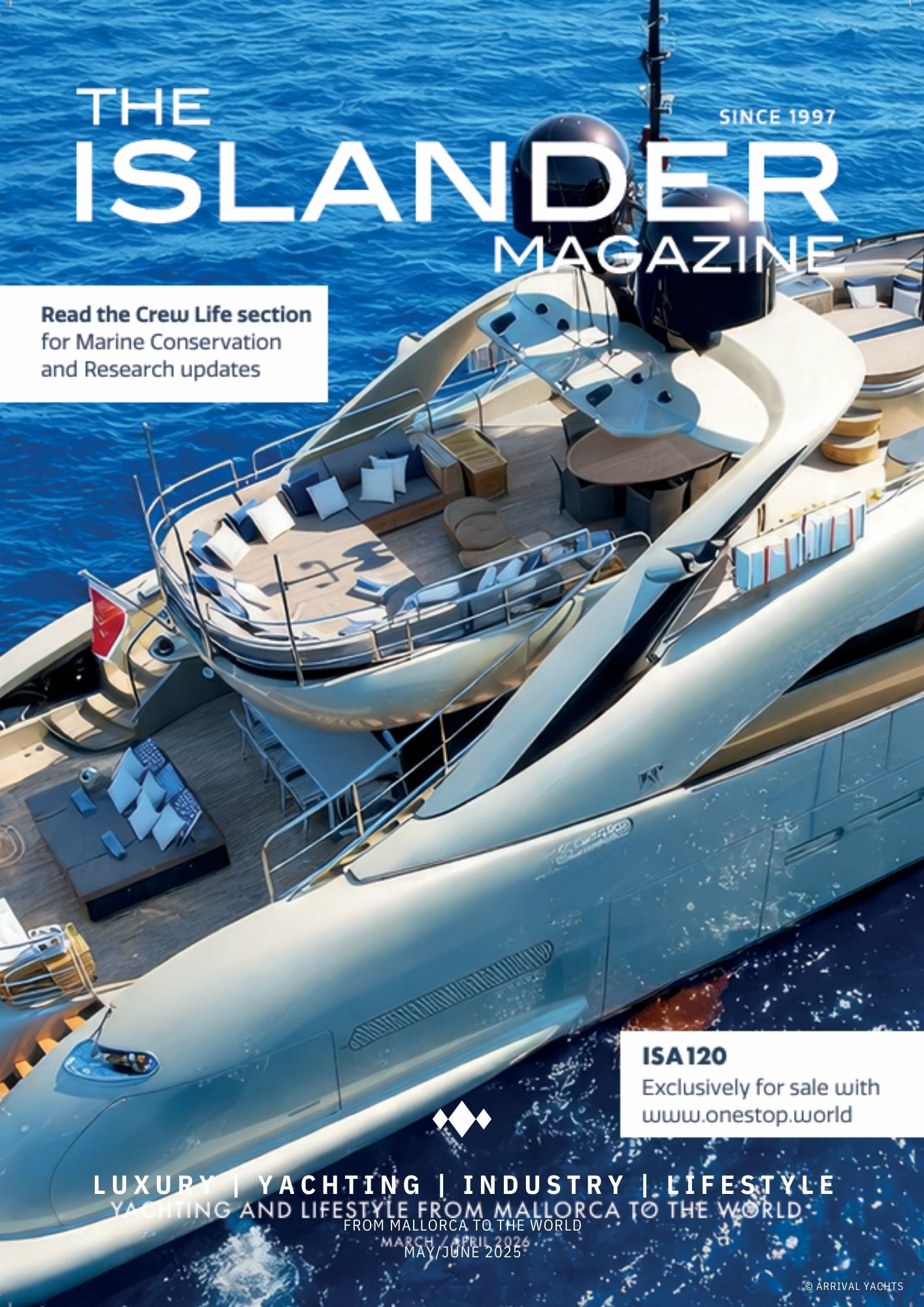On a dark, clear and crisp winter dawn, the Ponero fisher boat leaves the Port of Andratx, the engine gently roaring through the calm January waters. On-board are professional fishers Joan Torres and David Breijo, and Save the Med’s multimedia team.
It may seem incongruous to have a marine regeneration organization on-board a fishing vessel. However, as part of its objective to help regenerate marine ecosystems, Save the Med has worked closely with the artisanal fishing community in Andratx, learning about the lives and crafts of the fishers who live and work in this unique area of the island. The result of that work, is the “Weaving Ancestral Nets” short documentary series by the Direcció General de Pesca, which premiered in June, together with representatives of the department and the fisheries communities and the collaboration of Andratx Town Council. The series portrays the Llampuguera, Trammel Net, Moruna and Jonquillera artisanal fishing techniques, interviewing the fishers and their points of view on interactions with the marine environment, local consumption and cultural heritage.
Mallorca is home to a primarily artisan fishing fleet that is entwined with ancient local culture and traditions. The fleets, generally composed of small boats, engage in traditional practices that have been passed down through generations.
The craft of artisanal fishing plays a crucial role in the cultural, economic and environmental fabric of the Balearic region. If supported and regulated correctly, it can provide benefits to the island’s ecosystem as a whole.
The benefits of small scale fisheries
The work of many artisanal fishers in Mallorca is highly seasonal and has various spatial restrictions. The fishing methods are usually more selective than industrial trawlers, targeting specific species. Generally, compared to larger industrial fishing techniques, bycatch is reduced, minimizing the harm to non-target species.
Unlike industrial fishing operations, which will often export their catches to international markets, artisanal fishers typically supply local markets, restaurants and consumers. Creating a local supply chain ensures fresher seafood and strengthens local economies and communities.
In an ideal world, a steady source of protein will enhance the food security of a region. Reliance on local catches also reduces dependency on imported seafood, which can be subject to price fluctuations and supply chain disruptions.
Despite the benefits of local artisanal fleets compared to industrial fishing, small scale fisheries are in trouble. Touristification, overexploitation of fish stocks, competition from both industrial and recreational fishing, pollution, invasive species and climate change have put a huge strain on the profitability of the sector. Over half of Mediterranean fish stocks are overfished, with significant amounts of illegal and unregulated fishing causing coastal and small-scale fisheries to suffer.
With such uncertainty, in a job that is already demanding, it’s no surprise that younger generations are moving towards different careers. In principle, smaller artisanal fishing vessels tend to conduct the most selective and sustainable type of fishing, yet it is these fleets that are the most endangered, slowly disappearing.
So how can we change this unbalanced system? Like with many things, the idea is to act locally.
How Marine Protected Areas can help artisanal fishers
The waters of Sa Dragonera Island are protected as “Reserva Marina de Interés Pesquero”. This means the area is protected in order for fish populations of commercial interest to recover. This type of protection allows for artisanal fishing practices to continue, but has the bonus effect of benefiting the entire ecosystem within the habitat. Furthermore, it has been a success, with species of commercial interest showing a sevenfold increase in biomass over the years.
Antoni Grau, General Director for Fisheries of the Conselleria d’Agricultura, Pesca i Medi Ambient of the Balearic Government, stresses the importance of the creation and maintenance of the MPAs: ““In marine reserves, there are more fish, they are larger, and species that are difficult to find outside these areas are abundant. For this reason, the catches are better and have a higher economic value, which is why they are currently essential for the survival of the small-scale fishing fleet”.
Supporting local artisanal fishers is not just a nostalgic exercise of salvaging a traditional way of life, but so much more. It helps to rebalance an industry that at its worst, is causing the decline of fish populations around the world. Today, the fisheries industry is in dire need of policies that truly support sustainable fishing practices, protecting marine habitats and ensuring fair access to resources. Of course, our choices at the dinner table matter as well.
“There is a loss of the collective consciousness of consuming native, local fish” says Antoni Grau.
In order to reduce the pressure on our natural resources, many have chosen to stop eating fish altogether. In a place like the Balearic Islands, it is easy to find many varied and nutritious alternatives to fish protein. For those, however, who still want to include seafood in their diet, we urge you to consider the provenance of your fish, and to support local, artisan fleets.
Visit the Sa Dragonera website to watch the “Weaving Ancestral Nets” docuseries and find out more about current projects and events in the area:


























0 Comments